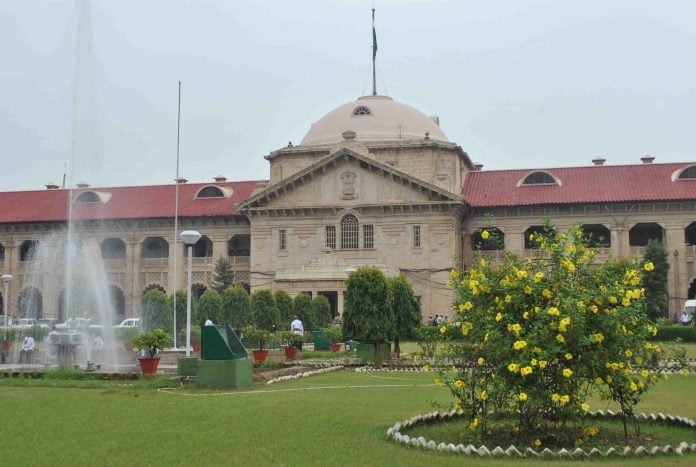The Indian judiciary is the protector of the fundamental rights of citizens and the guardian of the Constitution. The Supreme Court and High Courts are given the powers to protect, safeguard and uphold the statute. They are also empowered to declare a law null and void if it is found to be inconsistent with the Constitution. Our courts have stood by the rights of citizens in tough times too, especially when the litigants are not able to reach them.
The Covid-19 pandemic led to a Janata Curfew on March 22 and a 21-day lockdown in India. Before the Janata Curfew, March 19, 20 and 21 were declared as holidays in Allahabad High Court as well as Lucknow. This holiday period was extended up to March 25. Subsequently, keeping in mind the gravity of the situation arising out of Covid-19, the holidays were extended up to March 28.
The courts are closed now due to the lockdown. It is impossible for citizens to reach them for access to justice or redressal of their grievances. None of the petitioners can have access to courts, nor can lawyers. Even judges are confined to their respective homes and cannot hold court even if they wish to. In such a dire situation, how does one have access to justice?
If a person was released on bail or interim bail for a limited duration which expires during this lockdown period, how would he apply for extension of bail or interim bail? Or if an eviction, demolition or dispossession order was passed against anyone, how would he file an appeal and get a stay?
To ensure that citizens are not deprived of their right to approach courts of law, the chief justice of Allahabad HC, Justice Govind Mathur, exercised his jurisdiction under Articles 226 and 227 of the Constitution. He took the lead in this regard in PIL No. 564 of 2020 in Re v. State of U.P., and without a petitioner, his counsel, state of UP or its counsel, held a court at his residence by constituting a division bench on March 26 and issued directions in this case.
It was directed by the Court that if any criminal court in UP has granted bail orders or anticipatory bail for a limited period which is likely to expire in a month from “today” (March 26), the said orders would be extended for a month. Secondly, if any order of eviction, dispossession or demolition is already passed by the High Court, district or civil court, this too shall be in abeyance for a month from March 26, it said.
The Court said that considering that citizens find it impossible to reach the courts during the lockdown period, it is expected that state governments, municipal authorities and agencies and instrumentalities of the state will be slow in carrying out demolitions and evicting people. It also directed that this order be published on its official website and a soft copy be sent to all concerned courts, tribunals, the advocate-general, additional solicitor general of India, assistant solicitor general of India, state public prosecutor and the chairman of the Bar Council of UP.
During this time, locus standi too has been relaxed. Locus standi is the right to appear/stand in court or the capacity to bring an action. Normally, an affected litigant can approach the courts for airing his grievances.
This rule was relaxed earlier by the Supreme Court in cases where the public was involved in a PIL. But this requires a public-spirited person to knock at the door of courts. There are instances when a letter to the court was treated as a writ petition or where the Supreme Court took cognisance on the basis of a news item.
But during the lockdown period, physical copies of newspapers are not available. Even public-spirited NGOs are under lockdown. In such a scenario, the Allahabad High Court kept its doors open for access to justice by litigants. If, God forbid, the lockdown continues beyond April 25, it is expected that the Court’s order will be extended further.
—Justice Bhanwar Singh is a former judge of Allahabad High Court and is D-G, Delhi Metropolitan Education, School of Law, Noida. Prof NK Singh is former district and sessions judge (UP), and is Director, Judicial Training Academy & Dean, DME School of Law, Noida


